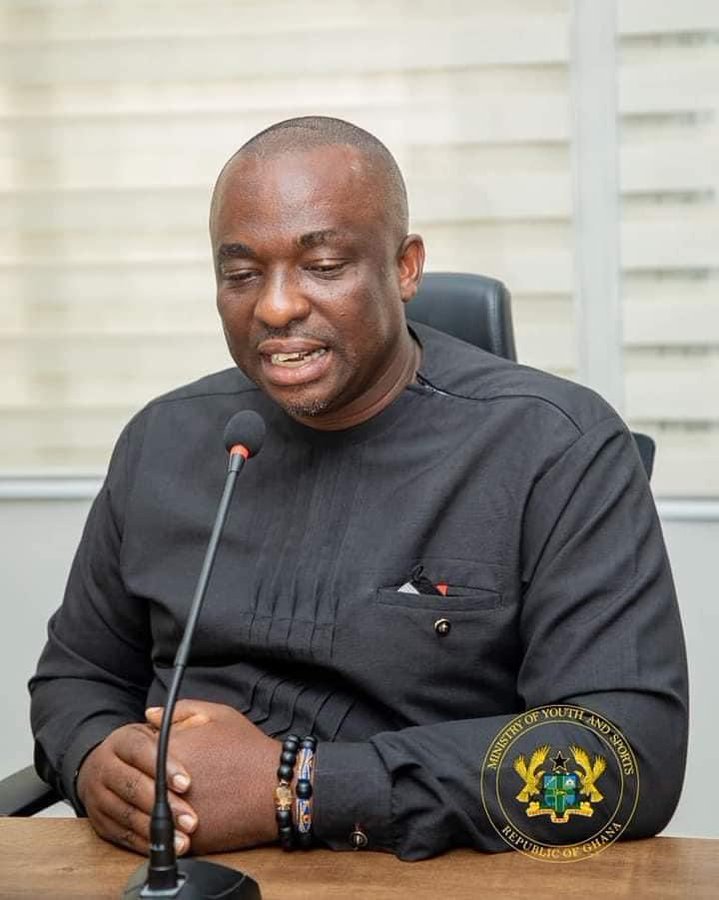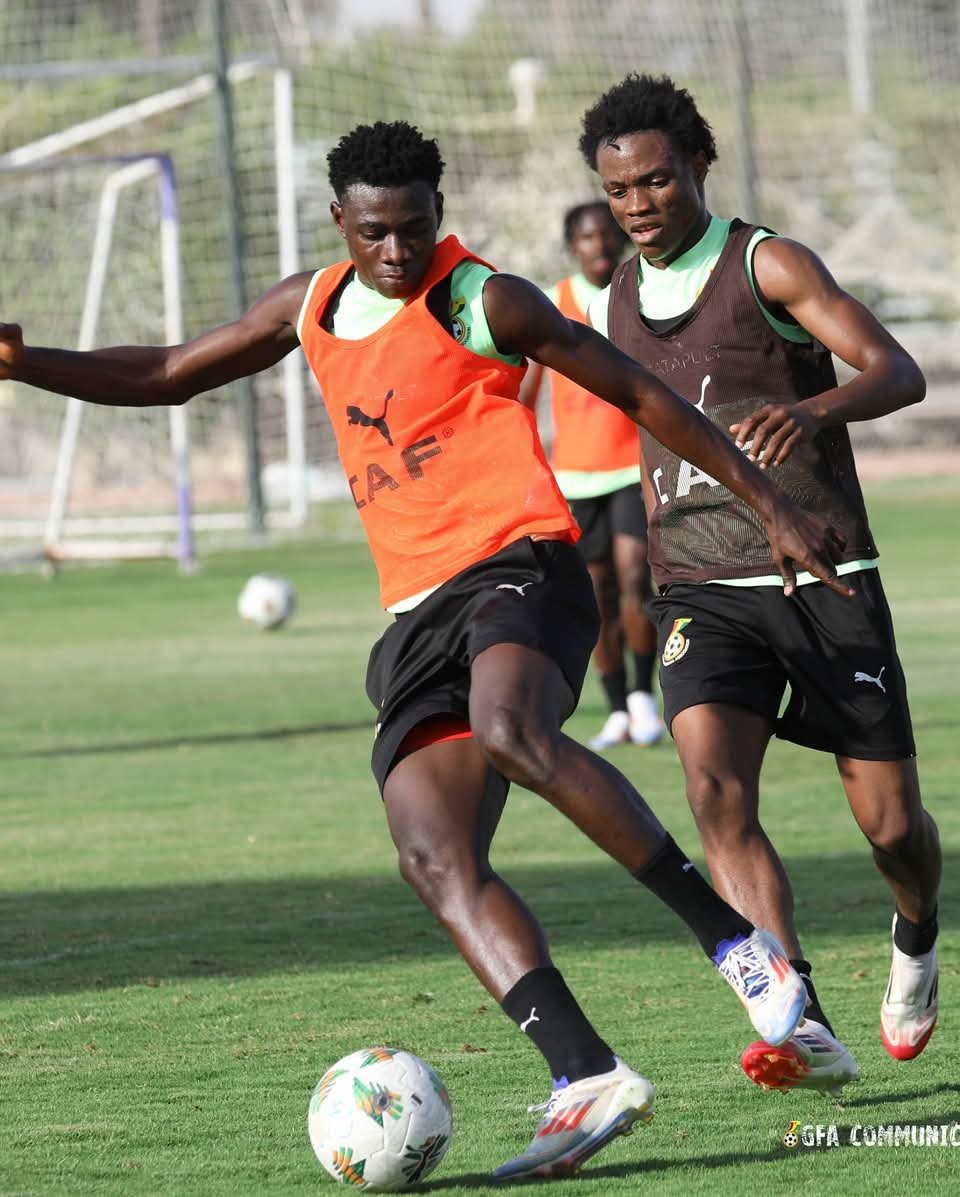Sports
A tragedy worth discussing

A boxer collapsing in the ring and eventually passing on is nothing new to followers of the sport of boxing.
It is the reason why commentaries on the collapse and death of a Nigerian boxer, Gabriel Oluwasegun Olanrewaju, in a Ghanaian ring are flying from all angles on both traditional and social media.
In fact, such occurrences are part of the many dangers that are associated with boxing. Some of the boxers that survived the brutal sport even end up suffering major health complications as a result.
That, perhaps explains why some people wonder why boxing is accepted or considered a sport.
Every stakeholders of boxing – from the boxers to the coaches, Matchmakers and Managers are fully aware of what they sign on to the moment they join the sport.
The boxers – the biggest sufferers – are aware of these dangers but strangely, they find fighting a passion and worth pursuing with the hunger required to succeed.
At the beginning, their sight and affection is fixed on the beautiful stories they read or hear about boxers that ended their careers successfully and becomes wealthy millionaires.
The mention of Oscar de la Hoya, Floyd Mayweather Jr., Manny Pacquiao, Caesar Chavez, Saul Alvarez Canelo, Gennady Golovkin, Ike Bazooka Quartey, and Azumah Nelson, among others fuels that passion.
So, at the start, issues about the dangers associated with it is not a concern at all.
Intriguingly, in Africa where logistics and required protocols are often not satisfactory, such incidents are not common.
For Nigerians, the first recorded case of a boxing tragedy occurred on June 14, 1982 when a young Ali collapsed in the ring, fell into coma, and died from blood clot two days later as he fought Ireland’s Barry McGuigan.
The list of victims of such incidents is so long.
Robert Wangila was a promising young fighter in Kenya but that burgeoning career was curtailed on July 22, 1994 when he died from an operation to remove a blood clot from his brain after a fight with USA’s David Gonzalez.
United Kingdom’s James Murray collapsed in the final round and died two days later after suffering brain injuries when he fought countryman, Drew Docherty.
On December 13, Zambia had their first experience with the sport’s darkest side.
Felix Bwalya emerged as a talented Zambian boxer and won a gold medal at the 1991 All-Africa Games and competed at the 1992 Summer Olympics in Barcelona, Spain.
As a professional, he became African champion and went 12–1 (9 KO) on his way to winning the Commonwealth belt.
Nicknamed ‘The Hammer’, he captured the African Boxing Union light welterweight and Commonwealth super lightweight titles in 1995 and 1997 respectively, the latter after a controversial victory over Briton Paul Burke in Lusaka but subsequently died from head injuries sustained in the fight.
Bwalya was knocked down three times in the final rounds and died nine days later.
While in a coma, he was found to have had malaria in his bloodstream. The autopsy report stated that the cause of death was cardiorespiratory failure, severe blunt force trauma to the head, and bronchopneumonia in his right lung.
For Ghanaians, Gabriel Olanrewaju tragedy may be the first in a local ring but not so for Ghanaian boxer, Steve Dotse, whose opponent, Bobby Tomasello, of the USA collapsed in his dressing room after a 10-round draw on October 10, 2000.
He fell into coma from which he never wake up, dying five days later.
From this, one could clearly find out that boxing and some of these health dangers are bedfellows but that of these dangers can be controlled when the right protocols are put in place.
All these unfortunate boxers had medical clearances before their respective fights but that did not absolve them from such incidents, hence the need to be serious with their medical checkups.
Gladly, the calls for a thorough investigation into the Bukom Boxing Arena incident are directed at ensuring that the right protocols are enforced on fight nights to minimise such dangers.
One would only hope that the outcome of investigation would not find either the Ghana Boxing Authority (GBA) or their counterparts, the Nigeria Boxing Board of Control (NBBC) culpable, despite the conflicting comments in their respective statements on the incident.
Going forward, this should serve as a wake-up call for the GBA to always ensure that the various structures in the federation works without unwarranted interference.
Again, dangers associated with the sport can also be stretched to the fans if recent occurrences at the Arena are anything to go by. That adds a lot of weight to the responsibilities on the GBA to make the sport very safe for all
By Andrew Nortey
Sports
Jerry Afriyie Departs Camp to Rejoin Club in Spain

The Ghana Football Association (GFA) has officially announced the departure of Jerry Afriyie from the camp of the Black Satellites to return to his club base in Spain.
This development is in line with a prior arrangement between the GFA and the player’s club, which had indicated that they would require his return following Ghana’s first two matches in the ongoing tournament.
The Association had to rely on such an arrangement because the tournament is being played outside the FIFA window for release of players.
Jerry Afriyie made a significant contribution to the team during our opening fixtures, playing a key role in securing valuable points that have positioned the Black Satellites strongly in the quest for qualification.
While the technical team and management would have preferred to retain his services for the entirety of the competition, the GFA remains committed to honouring all arrangements with clubs in the spirit of mutual respect, cooperation and professionalism.
“We are confident that the remaining members of the squad will build on the foundation laid in the first two matches and continue to push toward our collective objective of success in the tournament,” the statement added.
The GFA has taken this opportunity to express their heartfelt appreciation to Jerry Afriyie for his dedication and service during his time with the national team, and wished him continued success at his club.
“We also thank Ghanaians at home and abroad for the unwavering support shown to the Black Satellites and urge all to continue rallying behind the team as we pursue continental glory,” the statement concluded.
Sports
Black Satellites Hold First Training Session in Ismailia Ahead of Decisive Group C Encounter

Shortly after touching down in Ismailia, Ghana’s Black Satellites hit the ground running with their first training session ahead of Thursday’s Group C fixture against the Central African Republic at the TotalEnergies U-20 Africa Cup of Nations (AFCON) Egypt 2025.
The training, held at the Tolip 1 training pitch, saw a divided workload. Players who started in the team’s second group match against Senegal were put through a light recovery session, while the rest of the squad engaged in a more intensive workout.

The energy on the pitch was positive, with players upbeat and fully engaged as they sharpened their preparations for the showdown at Ismailia Stadium which kicks off at 1800 local time (1500 GMT).
Head Coach Desmond Ofei praised the team’s mindset and professionalism in quickly adjusting to their new environment.




“The attitude today was spot on. The boys understand what’s at stake, and the tempo at training reflected that. We’re building toward Thursday with confidence,” Ofei stated.
With two games down and all to play for in the final Group match, the Satellites are hoping to harness this momentum and passion to secure the win that will cement their place in the quarterfinals.







